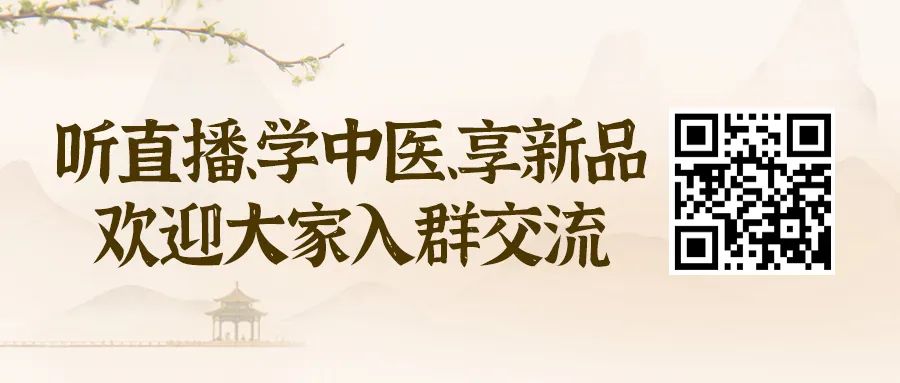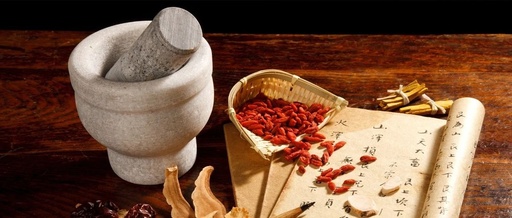This Issue’s Guide
In daily life, habits such as consuming cold and raw foods, indulging in cold drinks during summer, and wearing revealing clothing can damage Yang Qi over time, leading to insufficient Middle Yang and the internal generation of cold, resulting in Spleen and Stomach Yang Deficiency.
Common symptoms of Spleen and Stomach Yang Deficiency include:
✔ Cold limbs, persistent abdominal pain, preference for warmth and gentle pressure;
✔ Abdominal distension, poor appetite, food not tasting good, poor digestion, feeling full after eating little;
✔ Tolerance for warm food and drink, intolerance for cold;
✔ Fatigue in the limbs, constant feeling of drowsiness, lethargy;
✔ Occasional clear fluid in the mouth, loose stools, clear and frequent urination;
✔ Pale tongue with white, moist coating, no thirst;
✔ Deep and thin pulse, or deep and slow pulse.
If Spleen and Stomach Yang is deficient, and the Spleen fails to control blood, it may lead to symptoms such as hematochezia, hematemesis, epistaxis, or menorrhagia; if Middle Yang is insufficient and Yin cold prevails, it may lead to chest Yang deficiency, causing chest pain.
……
It is evident that there are various combinations of symptoms for Spleen and Stomach Yang Deficiency (Yang Deficiency). The question arises: how do we select the appropriate formula based on different symptom combinations?
Next, we will introduce several commonly used formulas for Spleen and Stomach Yang Deficiency:
1. Li Zhong Wan (Regulate the Middle Pill)
Li Zhong Wan is a fundamental formula for treating Spleen and Stomach Yang Deficiency, originating from the “Shang Han Lun” (Treatise on Cold Damage).
Composition of Li Zhong Wan: Gan Jiang (Dried Ginger), Ren Shen (Ginseng), Bai Zhu (White Atractylodes), Zhi Gan Cao (Honey-Fried Licorice).
Function: Warm the Middle, dispel cold, tonify Qi, and strengthen the Spleen.
Chief Herb: Gan Jiang
Gan Jiang is very pungent and hot, warming the Middle Jiao and Spleen and dispelling cold;
Deputy Herb: Ren Shen
Ren Shen is sweet and warm, benefiting Qi and strengthening the Spleen, supporting Yang. Yang deficiency often accompanies Qi deficiency; replenishing Qi can also support Yang.
Assistant Herb: Bai Zhu
When Spleen Yang is deficient, dampness and turbidity easily arise, which can further obstruct the Spleen and Stomach. Bai Zhu is sweet and warm, capable of tonifying Spleen deficiency and supporting Yang, while its bitter and drying properties can help the Spleen transform dampness.
Envoy Herb: Zhi Gan Cao
Tonifies deficiency and supports Yang, assisting Ren Shen and Bai Zhu in strengthening the Spleen and benefiting Qi; its sweet flavor can also alleviate pain and harmonize the other herbs.
Li Zhong Wan primarily focuses on warming the Middle Jiao; later generations have modified this formula, resulting in Fu Zi Li Zhong Wan and Gui Fu Li Zhong Wan.
2. Fu Zi Li Zhong Wan (Aconite Regulate the Middle Pill)
Composition: Zhi Fu Zi (Processed Aconite) + Li Zhong Wan (Dang Shen or Ren Shen, Bai Zhu, Gan Jiang, Zhi Gan Cao).
This can be considered an enhanced version of Li Zhong Wan. Based on Li Zhong Wan, it adds Zhi Fu Zi, which is very pungent and hot, circulating through the twelve meridians, warming the Kidney and Heart Yang. The combination of Zhi Fu Zi and Gan Jiang can dispel cold from the Middle Jiao and even from the Kidneys, enhancing the ability to warm and disperse cold, suitable for severe cases of Spleen and Stomach Yang Deficiency or Spleen and Kidney Yang Deficiency.
3. Gui Fu Li Zhong Wan (Cinnamon and Aconite Regulate the Middle Pill)
Composition: Rou Gui (Cinnamon) + Zhi Fu Zi + Li Zhong Wan (Dang Shen or Ren Shen, Bai Zhu, Gan Jiang, Zhi Gan Cao).
This can be considered an enhanced version of Fu Zi Li Zhong Wan. Rou Gui can tonify fire and support Yang, disperse cold and alleviate pain, and warm the meridians, guiding fire back to the source. The addition of Rou Gui strengthens the effects of dispersing cold and warming Yang. It not only warms and tonifies the Middle Jiao for Spleen and Stomach Yang Deficiency but also enhances the warming and tonifying effects for Kidney Yang Deficiency and Heart Yang Deficiency.
The above are the Li Zhong Wan family formulas that warm the Middle Jiao and Spleen and Stomach.
In addition, I would like to introduce a lesser-known formula that also warms the Middle Jiao and Spleen and Stomach: Xiao Jian Zhong Tang (Minor Construct the Middle Decoction).
4. Xiao Jian Zhong Tang
As the name suggests, it constructs the Middle, warming and tonifying the Middle Qi.
Function: Warm the Middle, tonify deficiency, harmonize the interior, and alleviate urgency.
Indications: Middle Jiao Yang Deficiency, Liver and Spleen disharmony, Yin and Yang imbalance.
When using Xiao Jian Zhong Tang, it is generally accompanied by the following symptoms:
1. Abdominal pain that is tense and intermittent, preference for warmth and gentle pressure;
2. Fatigue and weakness, palpitations;
3. Restlessness, irritability, dryness of the mouth and throat;
4. Pale tongue with white coating, thin and wiry pulse.
Middle Jiao Yang Deficiency leads to Earth deficiency, allowing Wood to invade, causing the symptoms in 1; Yin and Yang imbalance, both being deficient, leads to the symptoms in 2; deficiency of Ying and Yin leads to the symptoms in 3; Liver and Spleen disharmony leads to the symptoms in 4.
Xiao Jian Zhong Tang composition: Yi Tang (Maltose), Gui Zhi (Cinnamon Twig), Gan Cao (Licorice), Da Zao (Jujube), Shao Yao (Peony), Sheng Jiang (Fresh Ginger).
Except for Yi Tang, the other five ingredients form the well-known Gui Zhi Tang (Cinnamon Twig Decoction). Xiao Jian Zhong Tang is based on Gui Zhi Tang, doubling the amount of Shao Yao and adding Yi Tang, transforming it into a formula that warms and tonifies Spleen and Stomach deficiency.
Chief Herb: Yi Tang
Yi Tang is sweet and warm, capable of warming the Middle Jiao and tonifying Spleen and Stomach deficiency, and its sweet flavor can alleviate urgent pain.
Deputy Herbs: Gui Zhi, Bai Shao
Gui Zhi is pungent and warm, capable of dispersing cold and warming Spleen Yang. Combined with Yi Tang, it transforms Yang through its pungent and sweet properties, strengthening the Middle Qi, preventing it from being invaded by Liver Wood. Gui Zhi can also warm Heart Yang, and when the Heart is warm, Fire generates Earth, naturally strengthening Spleen function.
Bai Shao is sour, and when paired with the sweet Yi Tang, it can nourish Yin and alleviate tense abdominal pain; Bai Shao can tonify Liver Blood and soften the Liver; Bai Shao and Gui Zhi together harmonize Ying and Wei, regulating Yin and Yang.
Assistant Herbs: Sheng Jiang, Da Zao, Gan Cao
Sheng Jiang assists Gui Zhi in warming the Stomach and dispersing cold;
Da Zao supports Yi Tang in tonifying Spleen deficiency;
Sheng Jiang combined with Da Zao can also harmonize Ying and Wei and Yin and Yang.
Gan Cao: can benefit Qi and tonify deficiency; can alleviate urgent pain; its sweet flavor, when paired with Gui Zhi, can transform Yang through its pungent and sweet properties, and when paired with Bai Shao, can transform Yin through its sour and sweet properties, allowing Yin and Yang to generate each other, establishing Middle Qi; harmonizing all herbs.
It can be said that both Li Zhong Wan and Xiao Jian Zhong Tang can warm the Middle and dispel cold. The difference lies in that Li Zhong Wan purely focuses on warming and tonifying, primarily warming the Middle and strengthening the Spleen. Xiao Jian Zhong Tang, while warming and tonifying the Middle, can also harmonize the Liver and Spleen, alleviating tense abdominal pain caused by excessive Liver Wood.
To extend further, there is another formula that can warm the Spleen and Kidney, called Si Shen Wan (Four Spirit Pill).
5. Si Shen Wan
This formula not only warms the Spleen and Kidney but also treats conditions such as nocturnal diarrhea, undigested food, or clear diarrhea due to Spleen and Kidney Yang Deficiency.
Si Shen Wan composition: Bu Guo Zhi (Psoralea Fruit), Wu Zhu Yu (Evodia), Rou Dou Kou (Nutmeg), Wu Wei Zi (Schisandra).
Chief Herb: Bu Guo Zhi
Bu Guo Zhi is pungent and very warming, capable of tonifying the fire of the Ming Men (Gate of Life), which can generate Earth. Nocturnal diarrhea is often due to the decline of Ming Men fire.
Deputy Herb: Rou Dou Kou
Rou Dou Kou is pungent and warm, capable of warming the Spleen and Stomach, astringing the intestines and stopping diarrhea.
Assistant Herbs: Wu Zhu Yu, Wu Wei Zi
Wu Zhu Yu is pungent and hot, capable of warming the Spleen and Kidney, dispersing Yin cold.
Wu Wei Zi can astringe and consolidate Kidney Qi, stopping diarrhea.
Assistant Envoy: Sheng Jiang, Da Zao
Sheng Jiang warms the Stomach and disperses cold, while Da Zao tonifies Earth and nourishes the Spleen and Stomach.
Compared to Li Zhong Wan, Si Shen Wan warms the Spleen and also warms the Kidney, but primarily focuses on tonifying Kidney Yang while also addressing diarrhea.


